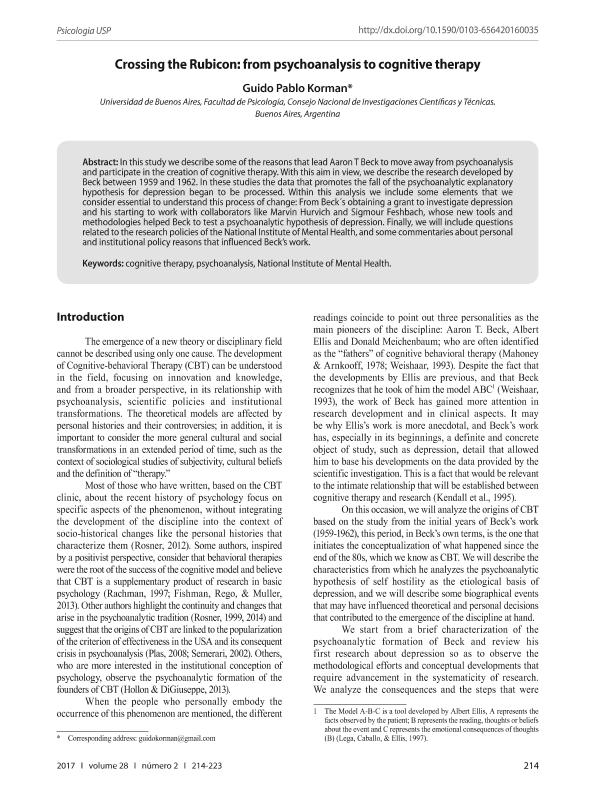Artículo
Crossing the Rubicon: From psychoanalysis to cognitive therapy
Fecha de publicación:
05/2017
Editorial:
Universidade de São Paulo. Instituto de Psicologia
Revista:
Psicologia Usp
ISSN:
0103-6564
e-ISSN:
1678-5177
Idioma:
Inglés
Tipo de recurso:
Artículo publicado
Clasificación temática:
Resumen
In this study we describe some of the reasons that lead Aaron T Beck to move away from psychoanalysis and participate in the creation of cognitive therapy. With this aim in view, we describe the research developed by Beck between 1959 and 1962. In these studies the data that promotes the fall of the psychoanalytic explanatory hypothesis for depression began to be processed. Within this analysis we include some elements that we consider essential to understand this process of change: From Beck's obtaining a grant to investigate depression and his starting to work with collaborators like Marvin Hurvich and Sigmour Feshbach, whose new tools and methodologies helped Beck to test a psychoanalytic hypothesis of depression. Finally, we will include questions related to the research policies of the National Institute of Mental Health, and some commentaries about personal and institutional policy reasons that influenced Beck's work.
Palabras clave:
Cognitive Therapy
,
National Institute of Mental Health
,
Psychoanalysis
Archivos asociados
Licencia
Identificadores
Colecciones
Articulos(SEDE CENTRAL)
Articulos de SEDE CENTRAL
Articulos de SEDE CENTRAL
Citación
Korman, Guido Pablo; Crossing the Rubicon: From psychoanalysis to cognitive therapy; Universidade de São Paulo. Instituto de Psicologia; Psicologia Usp; 28; 2; 5-2017; 214-223
Compartir
Altmétricas




